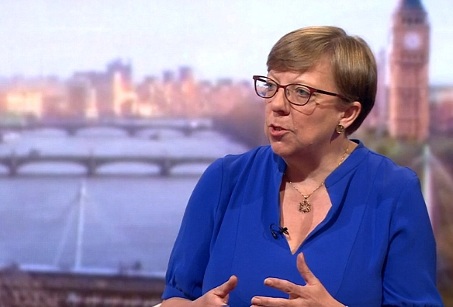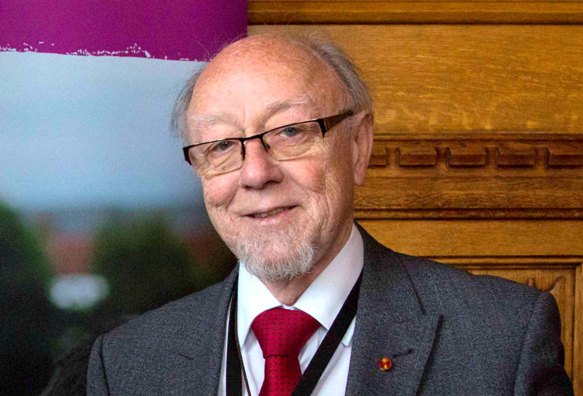In an astounding about face for the Crown Prosecution Service (CPS), the Director of Public Prosecutions (DPP), Alison Saunders (pictured), has revised her prosecution policy so that doctors can now be involved in assisting suicide with almost no fear of prosecution, provided they don't have a professional relationship with those they 'help' (See Daily Mail here and here, Daily Telegraph, Yahoo).
Not surprisingly, the move has been welcomed by euthanasia campaigner Michael Irwin, and will also please Australia's Philip Nitschke. Both Irwin and Nitschke are medical practitioners who have become notorious through their high profile campaigning for the legalisation of assisted suicide and/or euthanasia, and their high profile assistance to some suicides. Now it will be much easier for them to do so without a backward glance.
Michael Irwin was found guilty of serious professional misconduct by the General Medical Council in 2005 and was struck off the medical register after admitting supplying sleeping pills to help a friend kill himself. He now claims to have helped at least 25 people to die at the Dignitas facility in Switzerland.
Nitschke, who travels the world instructing people in how to end their lives using barbiturate drugs and nitrogen, is currently being investigated by police in every Australian state over his possible role in nearly 20 deaths in the past three years.
Both men will now be able to sleep more easily and to continue their activities in Britain with considerably more peace of mind. And the DPP will no longer have to explain why the CPS hasn't so far made moves to prosecute them. Under the Suicide Act 1961, assisting or encouraging suicide remains a crime attracting a custodial sentence of up to 14 years. But in order to be prosecuted any given case must pass two tests applied by the CPS. The evidence test requires that there be enough evidence to bring a successful prosecution. The public interest test involves the application of 22 criteria, 16 making prosecution more likely and 6 making it less likely.
Up until now a suspect 'acting in his or her capacity as a medical doctor, nurse, other healthcare professional, a professional carer [whether for payment or not]' was more likely to be prosecuted. But the DPP has now amended this criterion so that it only applies if the victim was in his or her care. In other words, it will not necessarily apply in the case of doctors like Irwin and Nitschke who are assisting the suicides of people who are not actually their own patients.
This is very concerning indeed. The DPP is effectively at a stroke of her pen decriminalising assisted suicide by doctors and other health care professionals as long as they don't have an existing professional care relationship with the patient. Alison Saunders' new guidance is an invitation to doctors who wish to push the boundaries and assist others' suicides to have free rein and go ahead. The DPP's job is to administer the law, not to usurp the democratic authority of Parliament, which is due to discuss this issue in more detail in just a couple of weeks' time. The position has been justified by reference to a contentious analysis in the Supreme Court of a statement made in the Court of Appeal.
In so doing, she has run roughshod over the original meaning of the CPS prosecution guidance. The original, developed in 2010, made it abundantly clear that any doctor or other health professional who assisted a suicide was running the risk of prosecution. Furthermore the General Medical Council (GMC) has warned that such doctors risk censure, including being struck off the medical register (see details of DPP and GMC guidelines here). Medical defence bodies have interpreted it in this same way in their advice to doctors and it has provided a strong deterrent to doctors abusing their powers. But now the DPP has swept this aside. In so doing, is she acting beyond her brief by effectively decriminalising by stealth physician assisted suicide?
When the guidelines were originally drafted by the former DPP, Sir Keir Starmer, they were subject to lengthy and rigorous public consultation. By contrast, Alison Saunders has seemingly chosen to revise them without any apparent further consultation.
In May 2012, the Solicitor General said in a parliamentary debate that if 'a future DPP overturned the guidelines, (s)he would be judicially reviewed for behaving in a rather whimsical way'. Such a judicial review will hopefully now take place. If MPs call for Ms Saunders to give answers in person concerning this troubling move, so much the better.









